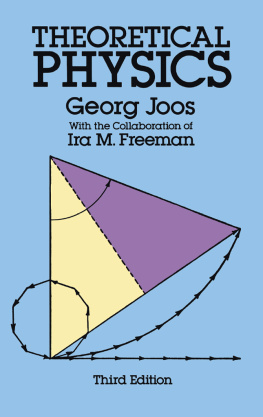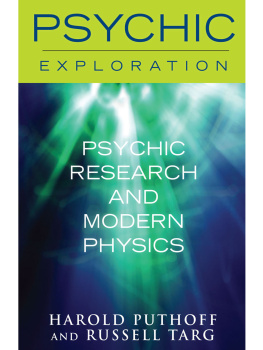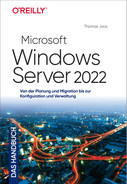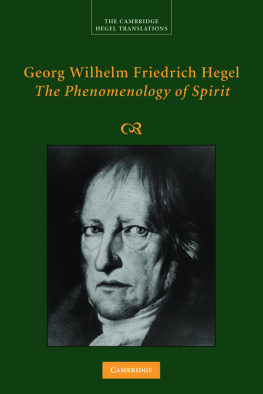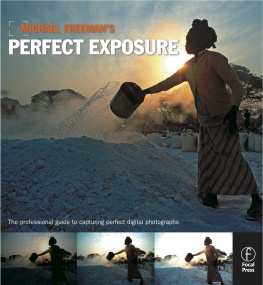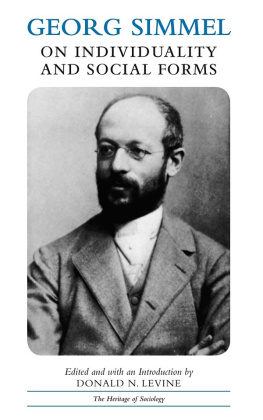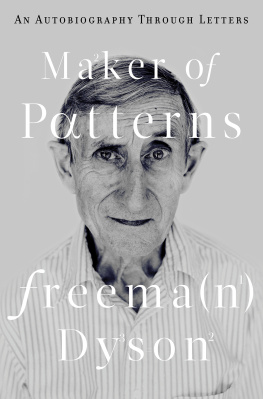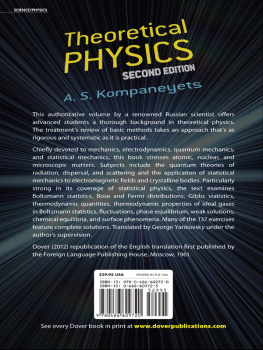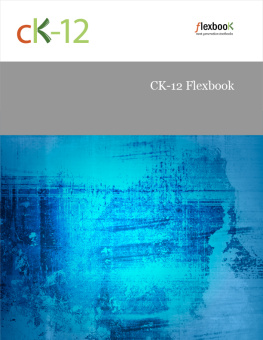Georg Joos Ira M. Freeman - Theoretical Physics
Here you can read online Georg Joos Ira M. Freeman - Theoretical Physics full text of the book (entire story) in english for free. Download pdf and epub, get meaning, cover and reviews about this ebook. year: 1987, publisher: Dover Publications, genre: Science. Description of the work, (preface) as well as reviews are available. Best literature library LitArk.com created for fans of good reading and offers a wide selection of genres:
Romance novel
Science fiction
Adventure
Detective
Science
History
Home and family
Prose
Art
Politics
Computer
Non-fiction
Religion
Business
Children
Humor
Choose a favorite category and find really read worthwhile books. Enjoy immersion in the world of imagination, feel the emotions of the characters or learn something new for yourself, make an fascinating discovery.
- Book:Theoretical Physics
- Author:
- Publisher:Dover Publications
- Genre:
- Year:1987
- Rating:5 / 5
- Favourites:Add to favourites
- Your mark:
- 100
- 1
- 2
- 3
- 4
- 5
Theoretical Physics: summary, description and annotation
We offer to read an annotation, description, summary or preface (depends on what the author of the book "Theoretical Physics" wrote himself). If you haven't found the necessary information about the book — write in the comments, we will try to find it.
Theoretical Physics — read online for free the complete book (whole text) full work
Below is the text of the book, divided by pages. System saving the place of the last page read, allows you to conveniently read the book "Theoretical Physics" online for free, without having to search again every time where you left off. Put a bookmark, and you can go to the page where you finished reading at any time.
Font size:
Interval:
Bookmark:
Theoretical Physics
GEORG JOOS
Professor of Experimental Physics at the
Technische Hochschule, Munich
With the Collaboration of
IRA M. FREEMAN
Professor of Physics, Rutgers University
THIRD EDITION
Dover Publications, Inc., New York
CONTENTS
Sections marked with an asterisk are somewhat more difficult
and may be omitted in the first perusal of the work
Mathematical Representation of Periodic
Phenomena; Theory of Vibrations and Waves
Selected Topics in the Theory of Functions
of a Complex Variable
The Fundamental Problem
of the Calculus of Variations and its Solution
General Theorems on the Mechanics
of Systems of Particles
The Mechanics of Liquids and Gases
(Hydro- and Aero-Mechanics)
FIELD THEORY OF ELECTROMAGNETIC AND
OPTICAL PHENOMENA
Energy and Ponderomotive Forces in
the Electrostatic Field
Rapidly Alternating Electromagnetic Fields:
IPropagation in Homogeneous Isotropic Media
Electromagnetic Waves: IIPhenomena in
Two Adjoining Media
Electromagnetic Waves: IIIPropagation in
Anisotropic Media. The Optics of Crystals
Electromagnetic Waves: IVThe Theory of
Diffraction
The Elements of Geometrical Optics and of
Interference Optics
THE THEORY OF ELECTRICITY. II. THE ATOMISTIC
NATURE OF ELECTRICAL PHENOMENA
The Fundamental Ideas of the Theory of
Metallic Conduction
Electron Theory of the Dielectric Constant,
Index of Refraction and Magnetic Permeability
The Equation of State of Thermodynamic
Systems
The First Law of Thermodynamics: The
Conservation of Energy
The Second Law of Thermodynamics: The Law
of Entropy
The Bose-Einstein and the Fermi-Dirac
Statistics
THE STRUCTURE OF ATOMS AND MOLECULES
AND THE THEORY OF SPECTRA
Critical Atomic Theory: The New Quantum
Mechanics
Atomic Problems First Solved by the Wave
Mechanics
Further Matters Connected with the
Geometric Optics of Light and of Electrons
Some Functions occurring in connection with the Wave
Equation
This Dover edition, first published in 1986, is an unabridged republication of the third edition (1958) of the work first published by Blackie and Son, Ltd., Glasgow, Scotland, in 1934.
Library of Congress Cataloging-in-Publication Data
Joos, Georg, 1894-1959.
Theoretical physics.
Translation of: Lehrbuch der theoretischen Physik.
Reprint. Originally published: 3rd ed. London : Blackie & Son, Ltd.; New York: Hafner Pub. Co., 1958.
Bibliography: p.
Includes index.
1. Mathematical physics. I. Freeman, Ira Maximilian, 1905-.II. Title.
QC20.J6131986530.186-29083
ISBN-13: 978-0-486-65227-6 (pbk.)
ISBN-10: 0-486-65227-0 (pbk.)
Manufactured in the United States by Courier Corporation
65227011
www.doverpublications.com
Theoretical Physics
THEORETICAL PHYSICS
INTRODUCTION
T HE P URPOSE AND M ETHODS OF T HEORETICAL P HYSICS
Purely experimental physics confines its activities to the exhibition of natural phenomena and the careful description of what occurs. One might, for example, observe the luminous effects produced by the passage of an electric current through a rarefied gas, record what is observed, and stop at that point; but to-day a procedure of this kind is justly regarded as being unsatisfactory. As soon as we inquire into the reasons for the phenomena, we enter the domain of theory, which, on the basis of hypotheses admitting of more or less direct test, connects the observed phenomena and traces them back to single pure phenomena, thus bringing about a logical arrangement of an enormous amount of observational material.
In the given example of electrical discharge in gases, an explanation i.e. a reference back to simple elementsrequires theoretical concepts concerning the construction of the atom from electric charges and the mechanism of the production of charge-bearing particles. We thus find that the explanation of the phenomenon is far from simple, and that many effects operate simultaneously. Consequently, from the theoretical standpoint, we cannot look upon the phenomenon as simple , however easy it is to produce experimentally. Theory alone can decide whether the experimental conditions are pure, i.e. simple from a theoretical point of view. In the present example, an experiment in which electrons of measurable uniform velocity collide with gas atoms may be regarded as simple, in spite of the considerable experimental difficulties, since on the basis of such experiments one can attempt to give an account of the more complex phenomena of the glow discharge.
While it is true that theory often sets difficult, if not impossible tasks for experiment, it does, on the other hand, often lighten the work of the experimenter by disclosing cogent relationships which make possible the indirect determination of inaccessible quantities, and thus render difficult measurements unnecessary. If it is required, for example, to measure the reflecting power of a certain metal, the direct determination would require troublesome and withal not very accurate photometric measurements. However, if we are familiar with the theory of metallic reflection (p. 346), we will measure, instead, two anglesthe principal angle of incidence and the principal azimuthfrom which the value of the reflecting power is completely determined.
Whence does theory obtain its hypotheses concerning the connexions between individual physical quantities and events? In the last analysis, only from experiment. It is the art of the theorist to deduce from the data at hand, connexions of the most far-reaching significance, and to draw therefrom conclusions which suggest new experiments. There does not exist a theory which draws only upon itself, and which has no contact with experimental results. The number of possibilities is too large for even the greatest genius to be able to construct, by unaided intuition, a world-picture which agrees with experience. Because of their neglect of experiment, the scientists (natural philosophers) of ancient times exhausted themselves in speculations which only proved of lasting value where they were connected with observation, as in Astronomy and Mechanics. A train of thought of the nature of the well-known Hegelian dialogue as smaller and smaller volumes are taken, the existence of atoms leads to meaningless density fluctuations, the values depending upon whether the volume element encloses an atomic nucleus or not. The small quantities prescribed by strict mathematics are indispensable in physics. Although we reckon with them as if they were infinitely small quantities, physical differentials have a not too small value. For such reasons, the ability to use the calculus as a tool is far more important to a physicist than a knowledge of strict concepts such as the limit mentioned above.
Theoretical and experimental physics cannot be separated, and a flawless, logically ordered picture of nature is obtained only by the application of both methods jointly. A rationally applied theory may have direct and immediate practical significance. If it is of importance to obtain the highest possible efficiency in a large-scale technical process, there is only one way to proceed: we must ascertain the most favourable conditions by exact calculations based on the theory; intuition is often deceptive. One need only recall, for example, the original pointed form of the airship, which seems to the great majority of people, if they are unfamiliar with hydrodynamics, to be the most effective form for cutting through the air.
Thus an exact knowledge of natural laws is sooner or later transmuted into economic advantages, which, as a sort of premium on intelligence , are gained by any society which organizes its industrial processes on rational principles.
Next pageFont size:
Interval:
Bookmark:
Similar books «Theoretical Physics»
Look at similar books to Theoretical Physics. We have selected literature similar in name and meaning in the hope of providing readers with more options to find new, interesting, not yet read works.
Discussion, reviews of the book Theoretical Physics and just readers' own opinions. Leave your comments, write what you think about the work, its meaning or the main characters. Specify what exactly you liked and what you didn't like, and why you think so.

